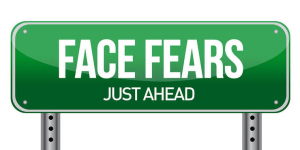Drinking alcohol socially has been a worldwide tradition since humans first discovered fermentation. Many cultures have a drink of choice, and in the United Kingdom, it’s beer. Though friends can hoist a few brews anywhere, the drinking establishment of the Brits is the Public House, more commonly called the “pub.”
As millions of beers were swallowed, pubs eventually came to represent more than just the place where your mug gets filled. Pubs became recognized as the favorite social gathering spot of a town. Inside, men and women would sing, play music, compete in games, and exchange ideas. Business, politics, and enjoyment were all tasks to be tackled in the local pub. It was a place for the professional and the layman to cast aside their titles and intermingle as Brits and as humans. Much of the British character could be captured by simply sitting in a pub.
They sound great! So what’s the problem?
Unfortunately for pub enthusiasts, maintaining a profitable pub nowadays is just hard. So hard in fact, that as many as 50 pubs in the UK are shutting their doors every week. The breweries which traditionally owned the establishments have largely been ousted by anti-monopoly legislation. As a result, an enterprise heavily focused on the crafting and distribution of high quality beer became one whose primary goal was to earn money.
Presently, gastropubs—a type of chain restaurant drinking house—represent more than half of the pubs still open in the UK (only about 25% of pubs are still retained by breweries and the rest are independently owned). Because of pressure to increase profits and pay out dividends to shareholders, gastropubs become homogenized, losing all character. The experience falls far short of what one would expect from a British pub.
For those independent pub owners trying to recreate a more traditional pub feel, bureaucratic inefficiency and landlording laws make managing difficult. Most of these pubs are “locked in”, forcing owners to purchase all alcohol from their landlord! This relationship eliminates competition and significantly raises costs.
It can’t be so hard, can it? What happened to “favourite social gathering spot” and all that?
Well, actually, the drinking culture in the UK isn’t quite what it used to be. There is a minority group of young people that are foregoing drinking altogether, but even those that do drink are not doing so in the pub. Many younger drinkers aren’t looking for atmosphere, but instead, just a place to get drunk. When the goal is binge drinking to the point of drunkenness, paying 2.5 pounds/pint becomes unreasonable. Instead, young drinkers are drinking grocery store wares at home, and those who do go out prefer nightclubs or bars. Removing these potential customers from the market makes it much harder for pubs to thrive.
Bummer. So how long until pubs are a thing of the past?
Though the stats are bleak, it’s too soon to write off pubs altogether. Not everyone is ready to abandon the cultural stronghold just yet, and resigning themselves to cookie cutter gastropubs isn’t the answer. As the fate of so many of the UK’s pubs began to darken, groups of traditionalists decided to get innovative and the results are worth watching.
While one-fourth of UK pubs are still brewery-owned, the widespread change in ownership has opened the field for independent brewers to take some of the market. Perhaps inspired by movements encouraging local living, small-scale breweries, commonly called microbrews, are popping up all over the nation and these microbrews are selling their draughts in self-owned pubs. In this manner pub owners can focus on quality and community without stressing over jacked-up landlord prices. This creates the perfect atmosphere for gathering socially.
The other, and even more interesting, approach to the restoration of the popularity and social integrity of pubs in Britain is the opening of cooperatives. Co-op pubs are owned by multiple individuals or groups from a given locality. Their efforts and funding go into opening, operating, and maintaining the establishment, and the profits are paid back to them as well.
In many ways, co-ops recreate the original spirit of the pub. Clearly it is beneficial to the community. Money spent there, stays there. Furthermore, the owners will not be distant, money-hungry strangers, but recognizable faces from the neighborhood likely to spend time in the place themselves! Co-op pubs involve and benefit their community directly, and by doing so increase their chances of reestablishing the pub as the central social hub of an area.
The days of universal participation may be over, but Britain’s pubs still have many good years ahead of them.
Daniel J Taylor
About the author:
Daniel J. Taylor is a freelance writer who loves reading, eating and road-tripping. On his new blog, he explores the meaning hiding in a mundane life and chronicles his exploratory journey into self-improvement. You can follow him on Twitter.
Image Credits: Nyul/BigStock.com







